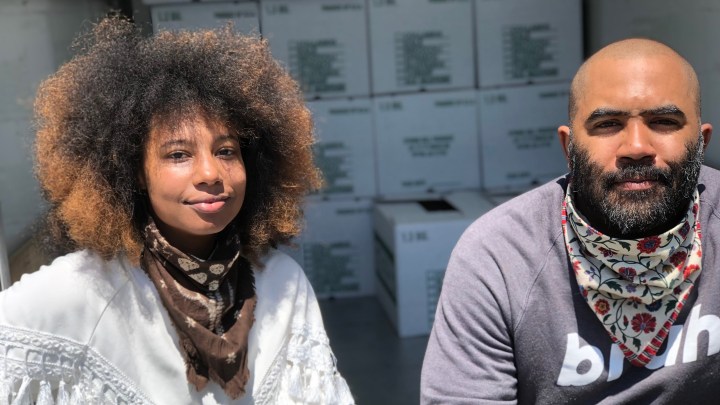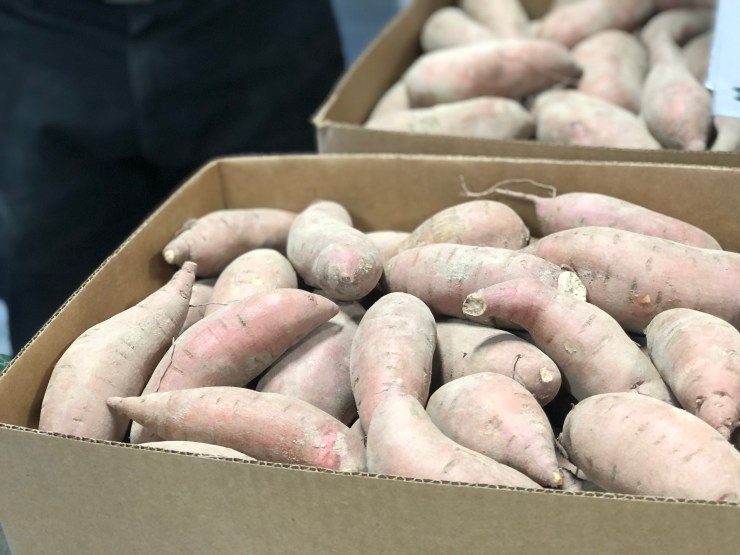This story aired February 2, 2021 on marketplace.org and was reported by Leoneda Inge (click on title to listen to the story).
New generation is helping to revive Black-owned farms

For generations, Black-owned farms have struggled, and they’ve all but disappeared in many parts of the country. Julius Tillery, a fifth-generation cotton farmer, is trying to turn that around.
“You can call me the Puff Daddy of cotton,” Tillery said. “People like to call me that.”

Tillery works with his family on Tillery Farms in Northampton County, North Carolina. He has witnessed Black farms like theirs disappear, he said, but he has also seen signs of revitalization from Black millennials, like himself. Tillery said young folks were coming back home. It was time for him to get his hands dirty.
“So I looked at what my great-grandfather was able to do and grandfather and even my father, utilizing cotton and keeping our family farm going,” Tillery said. “I wanted to make sure that we changed the narrative so people can see pride … and ownership around cotton.”
So, the 34-year-old Tillery founded Black Cotton — selling a small patch of cotton from the farm as wreaths, bouquets and other home décor items. He spends a lot of time packing and shipping boxes for the online business.
Just over 100 miles away is the Tall Grass Food Box, run out of Durham County. When schools, restaurants and farmers markets closed in the early months of the coronavirus pandemic, it was especially hard for small-scale Black farmers to sell their food. Hard to survive.https://d0931a11d9af18e97ec8395b188b8aa1.safeframe.googlesyndication.com/safeframe/1-0-37/html/container.html
Gabrielle E.W. Carter and two friends jumped into action. The 30-year-old helped re-create a supply chain to get fresh food from Black farmers to customers.
“Very fulfilling for me personally,” Carter said. “Just kind of reconnecting to some of the work that I feel like Black people, Black women in our communities especially, thinking about my grandmother. This is the type of work we do a lot of times.”

The Tall Grass Food Box uses a simple model. It stays in contact with a dozen or so farmers, and people go online and pay $50 for a box of fresh produce, like collard greens, mustard greens, sweet potatoes, carrots, radishes, whatever is coming out of the ground.
Anna Huckabee of Moonlight Farms said the boxes saved her mushroom business. She said it has been going well ever since she met the team at Tall Grass.
“I mean, just so much exposure just being with them,” Huckabee said. “I didn’t know what to do.”
Huckabee said dropping off her goods for the food boxes also gave her the chance to meet other Black farmers.
By the end of December, Tall Grass said it had raised $80,000 for Black farmers in the community.
Correction (Feb. 9, 2021): Derrick Beasley’s name was misspelled in the original photo caption for this story.